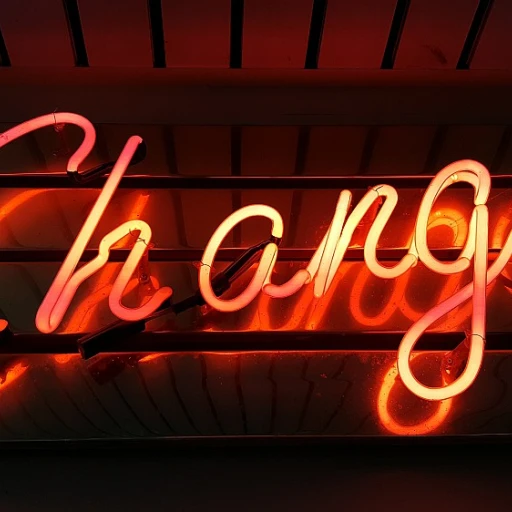Defining Diversity Hiring
Diversity Hiring: A Closer Look
Diversity hiring is rapidly becoming a pivotal focal point in modern recruitment strategies. It refers to the systematic approach of sourcing and recruiting candidates from varied backgrounds to ensure a rich, diverse workplace. Trending substantially in recent years, this concept is anchored in the idea of creating a workforce that mirrors the multifaceted society we inhabit. With an emphasis on equity inclusion, diversity hiring aims to dismantle systemic barriers that have historically hindered certain groups from securing equal employment opportunities.
Incorporating diverse talent in recruitment processes is not just a matter of moral or ethical obligation. Many companies have recognized that diverse teams bring a wealth of perspectives, leading to innovative solutions and a competitive edge in the marketplace. This approach to hiring fosters a culture where all employees feel valued and included, contributing to overall workplace diversity.
Moreover, diversity hiring is closely linked to the broader DEI (Diversity, Equity, and Inclusion) initiatives within a company. It requires re-evaluating job descriptions, reassessing the talent acquisition process, and understanding the impact of unconscious bias and how it can be mitigated during the recruitment phase. By deliberately diversifying their candidate pool, companies can ensure their hiring practices support an equitable and inclusive environment that attracts and retains various talents.
The Role of Diversity in Employer Branding
The Importance of Diversity in Shaping Employer Branding
As businesses strive to cultivate an appealing and competitive employer brand, diversity becomes a cornerstone in this endeavor. A diverse workplace does not only reflect a company's commitment to equity inclusion but also enhances its reputation in the recruiting landscape. Companies seeking to attract a diverse range of candidates must prioritize diversity in their core values and strategic operations.
Incorporating diversity in the hiring process aids companies in resonating with a broader audience, improving the overall employer brand. It signals to prospective employees that the organization values different perspectives and backgrounds. This is particularly crucial in today's job market where candidates often seek employers that champion diversity inclusion.
Furthermore, prioritizing a diverse workforce can lead to innovative ideas and solutions. Diverse teams typically bring varied viewpoints that can help refine products and services, ultimately enhancing customer satisfaction. For companies, this aspect of diversity recruiting translates into richer pools of diverse talent and a more dynamic work environment.
While diversity hiring stands as a tremendous opportunity, it comes with its own set of challenges. Companies must remain vigilant against unconscious bias throughout the hiring process, ensuring that every candidate is judged solely on their merit and potential contribution to the team. Crafting clear job descriptions and setting defined hiring goals can help organizations strive for a balanced and inclusive workforce.
Ultimately, the significance of diversity in employer branding extends beyond recruitment. It is about constructing a company culture that not only attracts but also retains diverse employees. This commitment is what distinguishes leading companies and fosters workplace diversity that fuels growth and success.
Challenges in Implementing Diversity Hiring
Overcoming the Obstacles in Diversity Hiring
Navigating the journey toward a more diverse workforce is not without hurdles. One of the foremost challenges in diversity hiring is combating unconscious bias within the hiring process. Despite efforts in crafting inclusive job descriptions and setting clear hiring goals, bias can still influence how candidates are evaluated. Companies need to be vigilant in training their recruitment teams to recognize and mitigate these biases, ensuring a fair evaluation of all candidates. Additionally, many organizations struggle with attracting diverse talent due to a lack of diversity in their current company culture or reputation. It becomes imperative for companies to visibly demonstrate their commitment to diversity and inclusion (DEI) to make themselves appealing to diverse candidates. This can involve showcasing a supportive, inclusive workplace and highlighting success stories of diversity hire initiatives in the workforce. In the recruiting process, another barrier could be the limited talent pool of qualified candidates from diverse backgrounds. Companies may need to broaden their search by sourcing from diverse networks, engaging in community outreach, and investing in workforce development programs that target underrepresented groups. By taking proactive measures, recruiting teams can significantly increase their chances of reaching a wider array of diverse candidates. Furthermore, the pressure to demonstrate quick outcomes from diversity recruiting efforts can sometimes lead to tokenism, rather than genuine inclusion. To tackle this, companies must track and measure the impact of their DEI hiring practices thoughtfully, aiming for meaningful long-term change rather than superficial results. By addressing the challenges head-on, organizations can foster a truly diverse workplace that benefits both employees and the company alike. For insights into how companies can effectively effect change in their hiring practices, consider exploring this vibrant history of impactful recruiting strategies. This provides a broader understanding of how strategic initiatives can lead to sustained and meaningful progress in diversity inclusion.Strategies for Successful Diversity Hiring
Effective Tactics to Promote Diversity in Recruitment
Successfully implementing diversity hiring within a company requires a comprehensive approach. A diverse workforce not only enriches the company culture but also enhances the overall productivity of the team. Here, we'll explore several strategies that can foster an environment of diversity inclusion.
- Develop Clear Hiring Goals: Establishing clear hiring targets focused on diversity can guide the recruiting efforts and ensure a broad spectrum of candidates. These goals need to be realistic and reflect the company's commitment to building a diverse workplace.
- Revamp Job Descriptions and Hiring Practices: Use inclusive language in job descriptions to attract diverse candidates. It's essential to avoid jargon that may deter potential hires and ensure that the criteria set forth are relevant and non-discriminatory.
- Diverse Talent Sourcing: Expand recruiting efforts beyond traditional methods. Engage with diverse professional networks and community organizations to reach underrepresented groups and tap into a wider talent pool.
- DEI Training and Unconscious Bias Workshops: Continuous education and workshops for the recruitment team on unconscious bias can prevent discrimination and promote equity inclusion in the hiring process.
- Utilize Diverse Recruiting Panels: Incorporating diverse perspectives in the selection process can aid in making balanced and fair hiring decisions, ensuring a supportive atmosphere for prospective employees.
These strategies are vital in creating a cohesive hiring process that champions diversity. By addressing challenges associated with diversity hiring, companies can cultivate a recruitment strategy that resonates with today's diverse candidates, creating a workforce that mirrors society's diversity.
Measuring the Impact of Diversity Hiring
Evaluating Success: The Metrics That Matter
The journey of diversity hiring doesn't just stop at implementing new recruitment practices. Measuring the impact of such initiatives is crucial to ensure they are achieving the intended goals and driving company growth in meaningful ways. The evaluation involves not only numbers but also qualitative aspects that reflect the contributions of diverse candidates within the workplace.- Representation in Workforce: Tracking the representation of diverse talent in the workforce is a foundational metric. Regularly analyze the demographics across different levels of the organization to identify any gaps and assess progress toward diversity hiring goals.
- Retention Rates: The success of diversity hiring doesn't solely depend on recruitment. Retention rates of diverse hires can indicate whether the company culture and inclusion strategies are effectively supporting a diverse workplace.
- Employee Engagement: Regular engagement surveys can uncover the sentiments of diverse employees, helping to identify areas for improvement in creating an equitable and inclusive environment.
- Promotion and Development Opportunities: Equitable promotion paths and professional development opportunities for diverse employees are key to assessing the true inclusivity of the company's practices.
- Feedback from Diverse Candidates and Employees: Encouraging open dialogues with current and potential employees can provide insights into the recruitment and workplace dynamics, highlighting areas that require attention in your diversity inclusion efforts.
Case Studies: Companies Leading in Diversity Hiring
Trailblazers in Diversity Initiatives: Leading Companies
The integration of diversity, equity, and inclusion (DEI) initiatives into company cultures has seen various corporations rise as leaders in the field of workplace diversity. These organizations have effectively adopted strategic approaches to diversity hiring, making significant strides in recruiting diverse candidates and fostering a more inclusive work environment. By sharing some standout examples of companies that have excelled in these efforts, we can glean insights into effective hiring practices and the transformations that accompany a commitment to diversity inclusion.
A prominent example includes a global tech firm that reconstructed its recruitment process to mitigate unconscious bias and promote diversity recruiting. By implementing blind resume reviews and standardizing job descriptions, this company has actively worked towards increasing the representation of diverse talents within its workforce. Their initiatives highlight the importance of tackling unconscious biases during the candidate evaluation process to meet their hiring goals.
Moreover, consider a multinational retail corporation that elevated its diversity hiring practices by setting measurable and transparent hiring targets. Such goals have been publicly shared, holding the company accountable and demonstrating their commitment to building a diverse workforce. The tangible impact of these initiatives is reflected in how they attract diverse candidates who now see the organization as an inclusive place to work.
Financial institutions have also taken significant steps, such as creating dedicated diversity councils to oversee and develop strategies that enhance DEI across various departments. Regular training sessions focusing on diversity, equity, and inclusion are conducted, ensuring every team and employee understands the company's diversity workplace objectives.
It's notable how these companies not only pursue diversity hiring as a moral and ethical obligation but also recognize its benefits in enriching company culture and fostering creativity. By showcasing these leading approaches, other organizations can learn and adopt similar strategies to ensure a more diverse and inclusive future.













